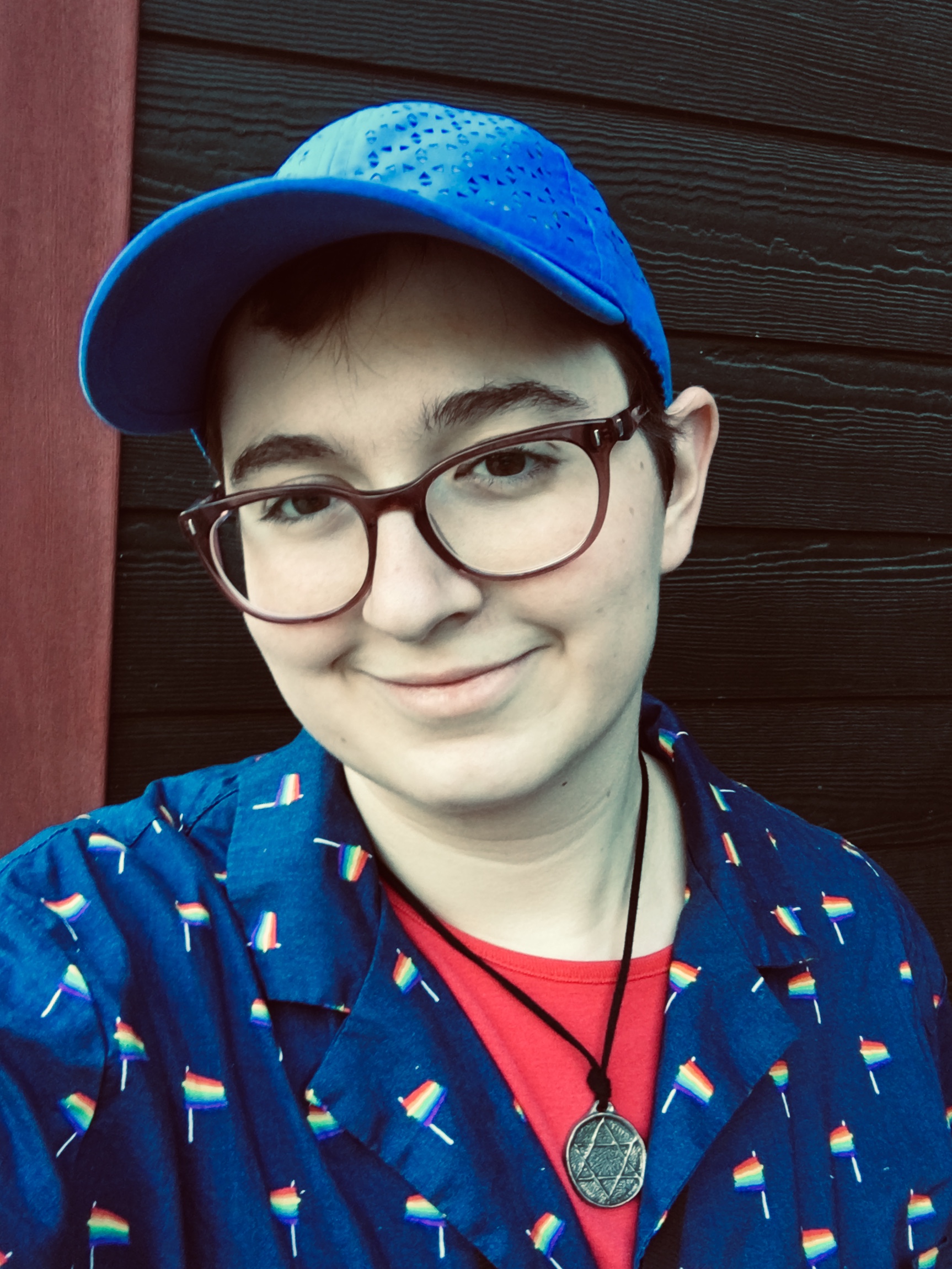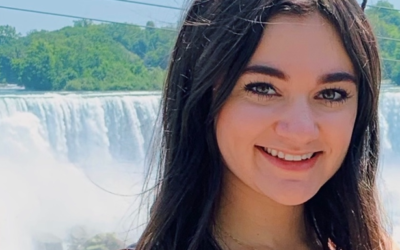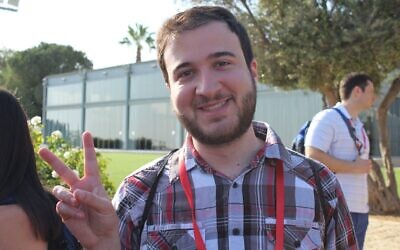Taking on COVID-19 as a Millennial
Jewish young adults discuss their responses to the pandemic.
Shira Preiser, 25, did not expect to be spending the last months of being 25 in quarantine, worrying about the safety of family.
“Some days it’s pretty terrifying. Some days it feels manageable.” Preiser has been coping with the COVID-19 pandemic by taking a lot more walks around the neighborhood than usual and making a point of reaching out to friends. “I’m not getting the sort of casual interaction with my coworkers or personal connection with my students that I normally would.”
Preiser’s younger brother works in a grocery store, and although he isn’t immunocompromised, Preiser is concerned about him and their mother, who is below the high-risk age, but still older. “I want to try to shield her from all this, but with my brother being an essential worker, that’s not really possible,” Preiser said.
For young adults, as for other age demographics, the pandemic has meant a radical shift in normal life. “It’s a very strange feeling,” Preiser said of the current state of the world. “It’s a mixture of this sort of cozy interpersonal connection with my family and my friends painted against this really scary and grief-saturated backdrop.” Even when something positive like the opportunity to talk to a friend arises, “you can’t forget it’s because of these awful circumstances,” Preiser said.

Preiser described the sadness of a friend who had to cancel her wedding. She still held a small ceremony, Preiser said, but it was certainly not what had originally been planned. Shira’s friend is planning on having a reception in the future, but of course nothing is certain, and the timeline is unknown. “It was really hard watching her struggle with that decision because I know it had been something incredibly important to her.” Preiser also mentioned that many of their friends are using the time stuck at home for self-reflection. “I’m noticing a lot of people reevaluating their priorities, which is really nice, but there’s an undercurrent of fear I really wish didn’t have to be there.”
This fear can have an impact on people, and it has on Preiser, who is thankful that some therapists are trained in and able to offer teletherapy. “I would very much encourage anyone who’s needing some extra emotional or psychological support to look and see if there are therapists who do teletherapy because it’s been a big help to have that emotional support.”
Preiser spoke about other friends who are struggling. There’s one friend who works for a startup who hasn’t been paid for their last month of work. There are some in other states who are required to go to work and are concerned for their own safety but have no choice financially. “For myself, and I would imagine many other people my age, this has confirmed a lot of the flaws that a lot of us already knew existed in both the healthcare system and labor law,” Preiser said, explaining that for those whose family members are considered essential workers, there’s a greater awareness about protections needed for them. “I think that if I had to make a prediction, myself and a great deal of other young people are probably going to come out of this more politically organized, more politically aware, and with a greater sense of emotional urgency to our political beliefs.”
Preiser said that the stereotypes seen in the media of millennials ignoring the recommendations are frustrating.
In contrast, Kadey Burstein, a senior at the University of Georgia, said that although her family has been very strict about the guidelines, she has seen on social media groups of college students hanging out in public areas like the pool.
“It’s really frustrating to see,” Burstein said. “These are people who aren’t staying with their parents and they’re thinking they’re young, they’re not going to get it. And that’s just not true.”
Burstein expressed concern that because America is now the epicenter of the virus, and hasn’t reached the peak yet, if people here don’t adhere to the guidelines it could continue to worsen and spread. Her family does Shabbat with extended family each week, and they have had to cancel, instead FaceTiming them. “It’s going to be hard to keep Passover. We’re going to try, but there are limited Passover resources at the stores. We’re going to try our best to keep Passover.”
Burstein was set to graduate from UGA in May, but is now spending her last semester stuck at home doing online classes, with commencement indefinitely postponed. “It’s my last semester of senior year of college, and I was preparing to have a great semester with all my friends and teachers,” she said. “It’s really hard on me and other people I know that it’s been cut short, because we don’t get to say a proper goodbye.”

The cancellation of the graduation ceremony was one of the hardest things to hear, Burstein said, as when you begin college as a freshman it’s “the point of your college career you look forward to and dream of. … You dream of walking across that stage. Walking under the [UGA] arch. Taking pictures, celebrating.”
Finishing classes as a science major has been particularly difficult, as professors who had prepared to teach hands-on labs have scrambled to transition to online learning, she said. “Teachers have been working really hard to transition, but it’s a lot harder to take upper-level science classes, with tests and stuff, online.” Burstein takes cellular biology, for example, and the tests have been made open book, which increases the difficulty because the questions are now conceptual, she said.
For a horticulture lab, the teachers sent her a box of supplies, but without face-to-face instruction, it is difficult to know what to do.
As tough as this has been for her, Burstein said some of her friends are having an even rougher time. “Some of the people I know aren’t taking it as well. They’re having a really difficult time with their mental health. … As students are transitioning at this time, they’re being kind of set back in a way. It’s just a really hard time for everyone.”
Josh Schwartz lives in a Moishe House in Atlanta, which provides Jewish programming for young adults. He said that their house decided to try to continue building a community virtually, although they are not required to do programming during this time. For April, they decided there are two main ways they can make an impact, Schwartz said. Along with planning a virtual Passover seder, last week they hosted a Zoom happy hour with 19 participants. They used The Jackbox Party Pack video game to play interactive games.

In terms of his personal response, Schwartz said the quote that’s resonated the most with him is “‘to not act like anyone else has it, but act like you have it and social distance yourself appropriately.’ That’s what resonated with me, to try to keep my friends and family safe. Doing what I can to support them from a distance.” He has been meeting his parents to drop off groceries and waving at them from his car and has been making a point to video chat with friends and family. “There’s a mixed reaction in terms of when people are concerned about themselves, but there’s an overall concern about harming the general community,” he said regarding efforts to social distance.
“There’s some anxiety, but I think I, in particular, am in a good space,” Schwartz said. “I’m supported by my work; I’m a cyber security consultant. … While I’m no longer traveling for work as I typically do, I’m still able to work and I’m still able to make an impact on my project and help clients during this time.”
Harper Landau, the Birthright Israel Community Fellow for Jewish Federation of Greater Atlanta, said they have seen a lot of desire from young adults, the demographic they call NextGen, to help the community in any way they can.
Federation is working with partner organizations to develop volunteering opportunities, such as “setting up ways that NextGen can go out and donate food, help deliver food, do these things with as little physical contact as possible,” she said. “People want to do what they can, and with this age group not always able to contribute financially, they’re able to contribute with time and energy.”
One major volunteer effort they’re working on, Landau said, is helping Jewish Family & Career Services keep its food bank full. “They’ve seen a huge increase in needs and amount of people they’re serving,” she said. “We’ve seen a huge response on that, sharing on social media.”
Staci Eichelbaum-Levine, the director of NextGen Philanthropy and Journeys for Federation, said they’re using every CDC guideline to develop these efforts for young adults. There’s a page on the Federation’s website where people can find volunteer resources, among other COVID-19 resources, including mental health, https://jewishatlanta.org/covid19-resources/.
Federation began an online grassroots giving campaign a couple of weeks ago. “We’ve been floating it through all of our networks,” Eichelbaum-Levine said. “We have seen members of the NextGen community step up and give what they can. We’ve been very impressed and grateful for the support from the NextGen community.”




comments